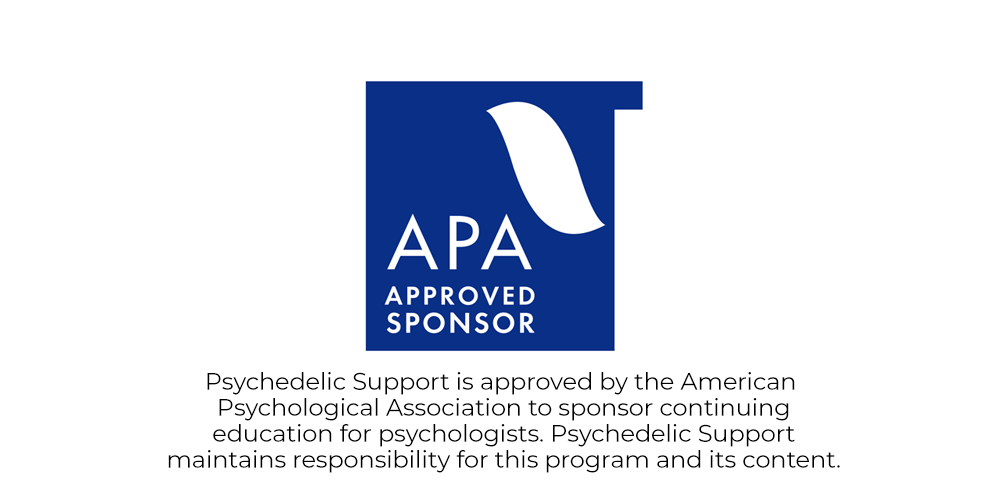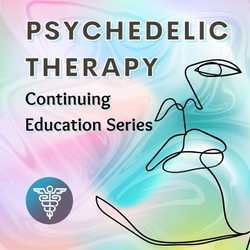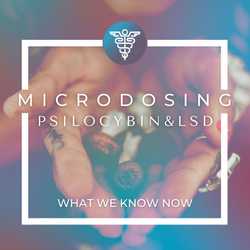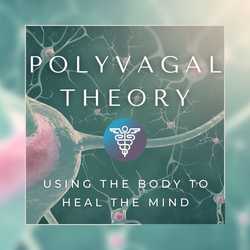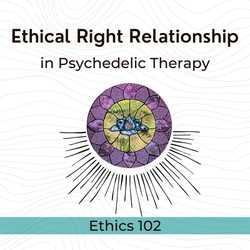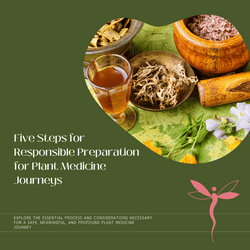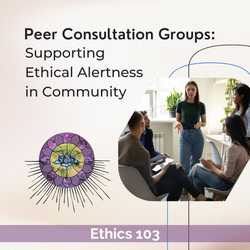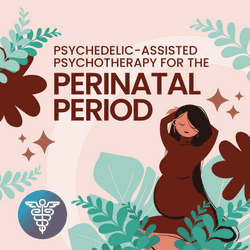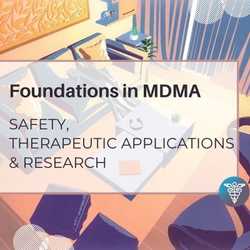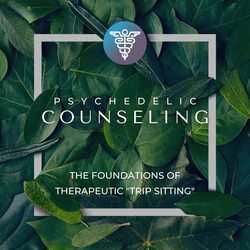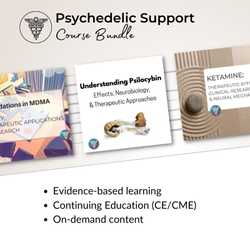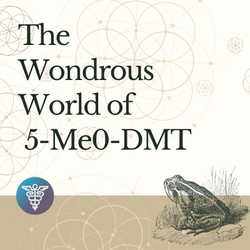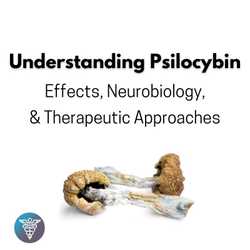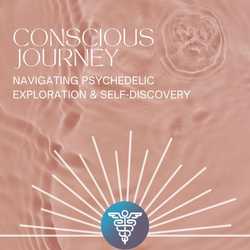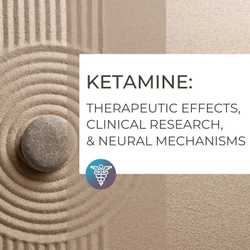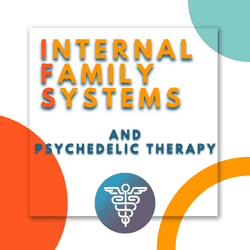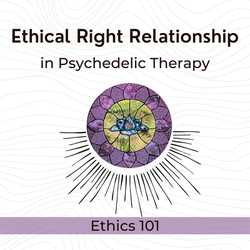Psychedelic Therapy For Underserved Populations: Assessing Risks & Benefits
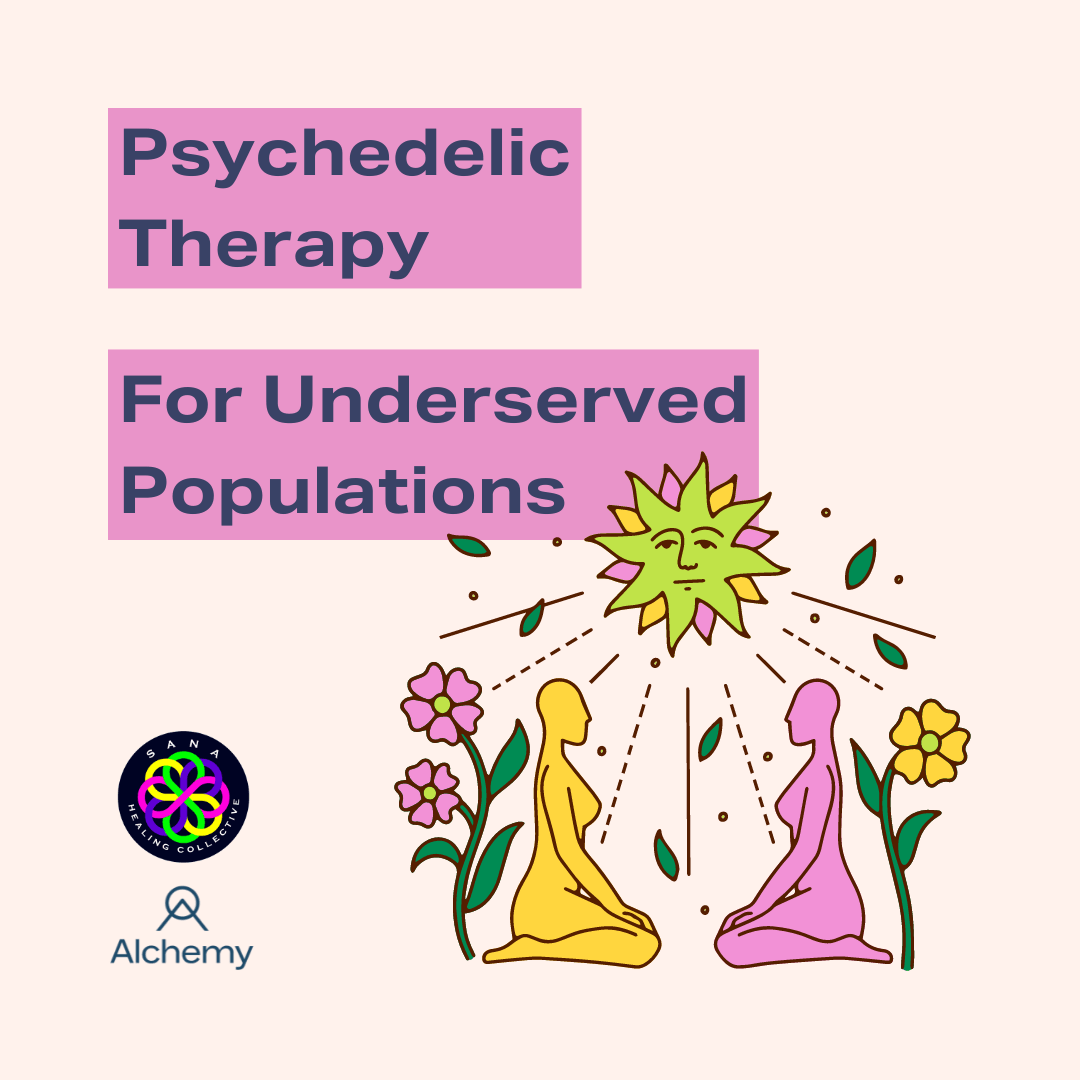
Psychedelic Therapy For Underserved Populations: Assessing Risks & Benefits
$0.00
Course Access
Guarantee
Learning
Course Description
Join us in this course to explore how to make psychedelic therapy safely and equitably accessible to clients from underserved communities, particularly those affected by the war on drugs.
In the age of psychedelic water, Facebook mushroom ads, and ketamine yoga, it’s hard to know what’s what. While “accessibility” should be a means towards equity, the intersection of capitalism and psychedelics has led to an interest in profit over ethical client care. “Accessible” psychedelic treatments are more readily available, but at what psychological cost?
Psychedelic medicines can be powerful tools that amplify the subconscious, lower defenses, and help people connect with more vulnerable parts of themselves. As such, this modality must be approached with care, especially when working to make these treatments more accessible to people who use drugs and other systematically-oppressed populations.
As co-founders of two nonprofit psychedelic therapy clinics, we will frame the course from our experiences of building sliding-scale clinics that work with clients who are often left out of the conversations within the psychedelic therapy space.
We review the impacts of the war on drugs on populations we work with, the current cultural context of psychedelic therapy, how we weave harm reduction approaches into our practice, and the risks of psychedelics (within and outside of therapy). We provide a culturally-sensitive tool for how to “assess clients in” for services.
Who is this course for?
Whether you're an aspiring psychedelic therapist, a psychedelic guide, or a client considering seeking psychedelic therapy treatment, we hope this course supports you in weighing out the risks and benefits of these medicines.
Course Curriculum
Harm Reduction Framework
- War on Drugs
- Who’s Currently Served by Psychedelic Therapy
- Overview of Theory of Harm Reduction Therapy
- Stigma & Psychedelic Exceptionalism
Risks & Benefits
- Psychedelics & Capitalism
- Risks of Psychedelic Use
- Risks of Psychedelic Therapy
- Benefits of Psychedelic Therapy
- When's it Worth the Risks?
Assessing In vs. Screening Out
- How to Collaboratively Work With Clients to Build Safety for Psychedelic Therapy
Learning Objectives
After this course, you will be able to:
- Describe “defiant hospitality” within the context of harm reduction.
- Identify ways the War on Drugs has led to potential unconscious bias when working with underserved and systemically oppressed populations.
- Identify ways that harm reduction approaches can be useful in psychedelic-assisted therapy.
- List the risks and benefits of psychedelic-assisted therapy.
- Discuss the efficacy of psychedelic-assisted therapy research in meeting the needs of underserved populations.
- Assess clients’ preparedness for participating in psychedelic-assisted therapy.
Professional Continuing Education
In support of improving patient care, Psychedelic Support offers continuing education for health providers through the the American Psychological Association (APA).
Testimonials
Meet your Course Instructors, Contributors, & Peer Reviewers:


Extra Info
- Online platform access: 1 year.
- After 1 year, renew your account for an additional year by purchasing any of our on-demand courses. All previously purchased courses will be accessible in your dashboard.
- 100% student satisfaction or money-back guarantee.
- For the best experience, we recommend taking the course on a tablet or computer.
- Course FAQ can be found here.
Self-paced course includes:
- Course syllabus with required readings
- Video presentation (125 minutes)
- “Assessing In: Collaborative Risk-Benefit Analysis for Psychedelic-Assisted Therapy With Underserved Populations”- a tool to help navigate assessing clients into psychedelic therapy, especially when working with underserved communities.
- Slide deck with informative graphics
- Additional resources document to continue deepening your learning
- Discussion forum to engage with other learners and instructors
- Quiz to track progress
- 1 year access to our online learning platform
- Invite to our monthly speaker series and access to videos from our past events
- Official Psychedelic Support Certificate of Completion
Choose the Continuing Education (CE) option for:
- 3 hours of continuing education (CE) credits
- CE Certificate for licensed professionals, including psychologists, therapists, nurses, social workers, etc.
- See below for more information about continuing education
Certificate Information
Interested in the different certificate options for our courses? Read on to learn more:
Once you complete the course you will receive a Psychedelic Support Certificate of Completion. Choose this option if you are not a licensed health provider and do not need continuing education credit for your professional degree.
Once you complete the course you will receive a Psychedelic Support CE Certificate. Choose this option if you are a licensed health provider who would like continuing education credit for your professional degree.
- Be sure to select the CE credit option when purchasing the course.
- Upon completion of the course, you will receive a Certificate of Attendance for your credits.
- CE credits for psychologists are provided by Psychedelic Support, an APA-approved CE sponsor.
- Psychedelic Support is approved by the American Psychological Association to sponsor continuing education for psychologists. Psychedelic Support maintains responsibility for this program and its content.
- The California Board of Behavioral Sciences accepts CE credits for LCSW, LPCC, LEP, and LMFT license renewal for programs offered by approved sponsors of CE by the American Psychological Association.
- LCSW, LPCC, LEP, and LMFTs, and other mental health professionals from states other than California need to check with their state licensing board as to whether or not they accept programs offered by approved sponsors of CE by the American Psychological Association.
- For questions about receiving your Certificate of Attendance, to request special accommodations, or report a grievance contact Psychedelic Support at info@psychedelic.support.
